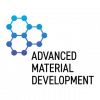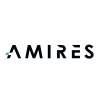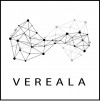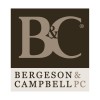The reporting of nanomaterials has been at the heart of nanotechnology stakeholder debates for the past few years; demands for formalised reporting schemes originate from a number of reasons, ranging from governments’ wishes to know what is on their local market to calls for ‘the consumer’s right to know’ made by NGOs and consumer organisations, to market analysts’ and policy makers’ interest in the extent of innovation through and commercialisation of nanomaterials.
Diverse concepts for information gathering schemes have emerged; some regulatory authorities sought simple notification of raw materials on the nanoscale as part of an existing substance- or chemical authorisation process, while others have set up complex paper traceability schemes that are applicable throughout a supply chain, that enable the registration of nanomaterials in both raw material form and in final consumer products and waste disposal contexts.
Over the last few years, a number of approaches to reporting have been proposed and implemented. Industries and research organisations working with nanomaterials have been subjected either to approaches based on voluntary reporting or on mandatory reporting:
Voluntary Reporting Schemes:
- In 2006, Australia (i.e. the Australian Department of Health and Ageing) conducted a voluntary reporting of nanomaterials manufactured or imported between 2005 and 2006 as an extension to its National Industrial Notification and Assessment Scheme (NICNAS) (follow these links to the original NICNAS publication (2006), a summary of the NICNAS Scheme results (2007)). NICNAS launched another call for information in 2008, in order to identify changes in the types and volumes of nanomaterials on the market in Australia.
- Between 2005 and 2006, the German Federal Institute for Occupational Health and Safety (Bundesanstalt für Arbeitsschutz und Arbeitsmedizin, BAuA) and the Association of the Chemical Industry (Verband der Chemischen Industrie, VCI) set a corporate survey to collect information on a voluntary basis.
- In 2006 the United Kingdom Government Department for Environment, Food and Rural Affairs (DEFRA) started a Voluntary Reporting Scheme (VRS) of Engineered Nanomaterials.
- In 2006, Ireland also proceeded to a voluntary survey, followed by Denmark in 2007.
- In 2008, the United States Environmental Protection Agency (EPA) launched its Nanoscale Materials Stewardship Programme, a 2 year-long voluntary reporting scheme, that was considered successful after a year of execution.
Mandatory Reporting Schemes:
- In 2009, Canada sought to set a mandatory reporting scheme for manufacturers or importers of more than a kilogram of a nanomaterial in the previous year, the scheme has still not come to fruition.
- In 2012, 10 European Member States plus Croatia pushed for a European Reporting Scheme with a letter to the European Commission.
- In 2013, France launched its mandatory Declaration of Nanomaterials, the French Environment agency published results of the first round of reporting in November 2013.
- The Danish Environmental Protection Agency finalised a comparable scheme in 2014; the deadline for the first round of registration is 30 August 2015.
- The Belgian Federal public service Health, Food safety and environment has set up a registration scheme which will be operational in January 2016.
- Norway is seeking to set a register of nanoscale materials under its Pollution Control Authority (SFT). From 2013, the Norwegian Product Register requires information for chemicals containing ‘a substance in nano form’.
- Sweden and Italy are considering setting up mandatory reporting schemes.
- Since 2010, the European Union institutions aim at setting a 'harmonized database of nanomaterials', it is now running a study on 'transparency measures'.
Support for NIA Members:
NIA provides specific support and information to its Members to address Databases and Reporting Schemes.



















